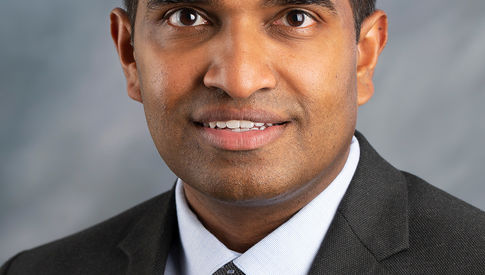We’re Stronger Together
With your help, we can make ambitious innovations in clinical care and education for our community.
Interstitial lung disease (ILD) is the term for a group of conditions that damage the lungs. These conditions cause inflammation and scarring of what’s known as the interstitium. This is the name for the lung tissue between the air sacs and the blood vessels. The inflammation and scarring of this tissue makes it difficult for your body to take in oxygen. Over time, it becomes more difficult for you to breathe.
ILD is a rare but serious condition. It’s important that you see an experienced specialist who can diagnose and treat you in a timely manner. Loma Linda University Health’s Interstitial Lung Disease Program has the expertise to provide you with exceptional care.
Our specialists have expertise treating complex interstitial lung diseases, including:
Because ILD has many causes, our pulmonologists work with a team of other specialists. Rheumatologists, radiologists, pathologists, and thoracic surgeons all work together to provide you with the absolute best quality of care. Our team identifies the exact type of ILD you have and determines how best to treat you and your unique situation.
Since ILD often requires long-term treatment, our first priority is making a precise diagnosis and estimating the severity of the disease. Before we start your treatment, we will perform some advanced tests to identify the exact issue affecting your lungs. These may include:
We offer a wide range of treatment options, including anti-inflammatory agents (to reduce inflammation), anti-fibrotic therapies (to prevent or reduce lung tissue scarring) and biologics (to suppress the immune response causing the inflammation).
The clinical course of ILD can be unpredictable. We closely monitor your symptoms and lung function, then modify your treatment plan as needed to optimize your care.


“My personal goal is to partner with my patients in treatment decisions, empower them with the knowledge they need to make the right choice for them, and ultimately help them live their lives to the fullest."
These resources may be able to help you better understand and manage your ILD.


“My personal goal is to partner with my patients in treatment decisions, empower them with the knowledge they need to make the right choice for them, and ultimately help them live their lives to the fullest."
These resources may be able to help you better understand and manage your ILD.
With your help, we can make ambitious innovations in clinical care and education for our community.